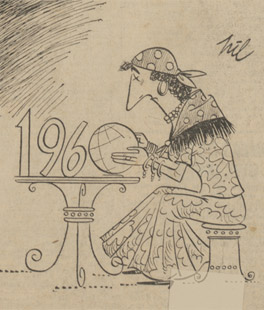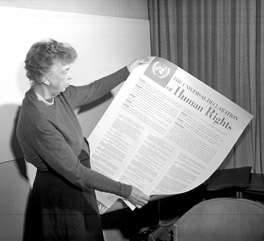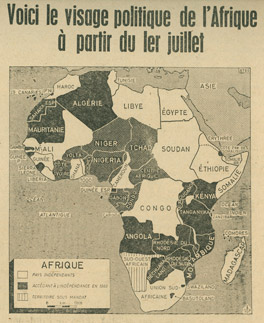THE GEOPOLITICAL CONTEXT
 De Standaard, 01/01/1960 Coll. Universiteitsbibliotheek Gent De Standaard, 01/01/1960 Coll. Universiteitsbibliotheek Gent |
'The Suns of Independence' If the 19th century was the age of colonization, then the 20th century will be the age of decolonization: between 1958 and 1960, the word 'independence' resonates internationally. 1960 is a record year for independence. Between 1 January and 28 November 1960, no fewer than 18 countries declare it: Cyprus and 17 African countries of which 15 were under French rule. Other colonies – British and Portuguese – will follow suit between 1962 and 1990. The wave of independence is generated within a particular international context. The end of the Second World War sends a strong signal: Europe is weakened, and its colonies, which contributed greatly to the war effort, examine the nature of their relationship to the colonial master. At the same time, the cold war begins and spreads across the globe as the two blocs, East and West, look to expand their spheres of influence over new independent states. Both sides invoke ideological motivations, but they also have geopolitical and economic ones. |
 Eleanor Roosevelt holds the Universal Declaration of Human Rights 1948, © United Nations Eleanor Roosevelt holds the Universal Declaration of Human Rights 1948, © United Nations |
1955: Bandung Conference The first Afro-Asian Conference is held in Bandung (Indonesia) from 18 to 24 April 1955, attracting representatives of 29 independent African and Asian countries. In attendance are political leaders such as Nasser (Egypt), Nehru (India), Sukarno (Indonesia) and Zhou Enlai (China). The conference marks the entry of the 'Third World' onto the international stage. It condemns colonization, imperialism and racism, and apartheid in South Africa. Participating countries call on those still colonized to fight for their independence using peaceful means and negotiation. The 29 'non-aligned' countries declare their intention to distance themselves from the cold war and to refuse inclusion in either the American or Soviet bloc. |
 Essor du Congo, 29/06/1960 RMCA Essor du Congo, 29/06/1960 RMCA |
All-African People's Conference, Accra The Accra, Ghana, conference is held from 15 to 22 April 1958. Representatives from eight countries attend: Ghana, Egypt, Ethiopia, Liberia, Libya, Morocco, Sudan and Tunisia. Strongly united by their common concerns – independence and economic development – they demand an end to colonialism and greater representation of African countries in the UN and the international community. The conference is the first concrete demonstration of pan-Africanism. The eight countries decide to support independence movements in Africa, representatives of which they invite, including Patrice Lumumba of Belgian Congo. On his return from Accra, at a meeting to report back on conference proceedings, he will demand independence for Congo. |


